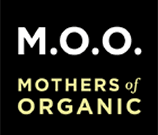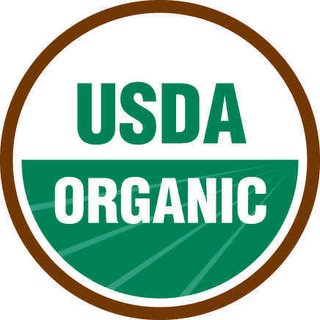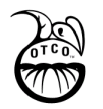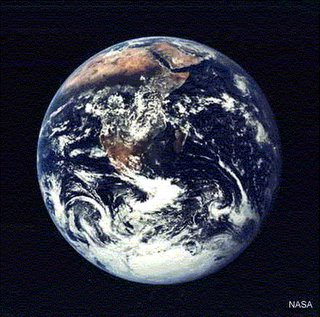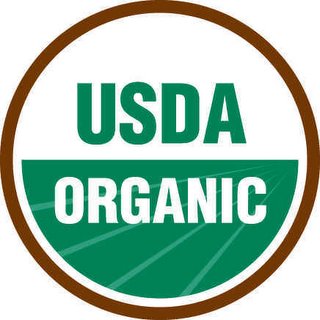
If you want to eat green, I will suggest chocolate chip cookies and Pop Tarts.
It may be hard to believe, but at our local Trader Joe's they stock
organic chocolate chip cookies and Pop-tart-like toaster pastries. Really. And at least 20 different types of organic breakfast cereal, some of which are quite familiar -- like raisin bran -- and even what in another brand and era were called "Super Sugar Crisps."
We are all pretty clear that none of this food is particularly
good for you. But it's
organic! This is actually an important moment, when even junk food is at least organic. It means that organic has transcended the rarefied bins of the health-food store. It means that organic food (and especially fruits and vegetables) are available at any major Supermarket (at least in California).
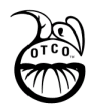
That
Trader Joe's now stocks a staggering array of organic food, including the aforementioned cookies, toaster pastries and dry cereal.
(Actually Trader Joe's is itself a green practice. Not only do all the TJ brands not contain artificial preservatives, they are all non-GMO even if the product is *not* organic. It's hard to go "brown" at a TJ store these days.)
But remember, organic means, generally, that all the ingredients were grown without chemical and petroleum-based artificial pesticides or fertilizers. Which means no poison residue for you to eat, and no spoliation of the earth to produce your food. Good for you, good for the environment.
Organic foods used to be shockingly healthy too. If a loaf of bread was organic, it was also probably a 32-grain, sprouted-health wonder, made by hand by chanting monks in a Zen monastery. But the one-time association between organic and a spartan healthy-ness is no more.
So if it is junk food, how can it help if it is organic junk food?
1. No Poison on the Food.
Many folks prefer not to have to scrub toxic chemical residues off of their food. If they really do all come off.
Given the choice of carefully washing then eating an apple that was repeatedly bathed in a petroleum-based, carcinogenic, mutagenic nuerotoxin while being grown on the one hand or eating one that was not so bathed , I think I'll take the clean apple, thank you. It may be all in my head, but if its all the same to you, I've noticed that the famous last words "It's perfectly harmless" often are just that. Last words.
2. No Poison on the People
Although not strictly a green (small g) issues, workers that pick the food you eat, and nearby residents, get a good dose of the herbicides and pesticides intended for the plants. This is not good. Organic avoids this part of the farm problem.
3. No Poison on the Earth.
Organics use sustainably, biologically sound farming principals. No poison residue in the field, or poison run off in waterways, or leaching into other water supplies. No accidental over-kill of beneficial insects. No soil killing residues from chemical fertilizers. Not only do you not have to eat the poison residue, neither does the rest of the environment.
4. Low on Oil
We've mention this: Organics do not use petroleum based chemical fertilizers, herbicides and pesticides. The key words here are "petroleum based." Agriculture competes for one heck of a lot of its "modern" tools with your automobile and the plastics industry. The fewer petrochemicals used in agriculture, the less demand for oil and price competition.
5. No Food production degradation.
Organics use the natural process that work well together to produce optimal food product -- the most that can responsibly be taken from the land without causing large scale damage, and without producing crops that are largely tasteless. Organic processed foods also avoid the heaviest processing and artificial ingredients. This is at least three sub-points on its own, but we're trying to keep things easy.
In that respect, although there are a half-dozen additional reasons to eat as much organic as possible, trying to keep it all straight is a job for a dedicated tree-hugger. Around the Easy Green household we have simply started referring to organic food as "clean food" and the rest as "poison food" or, in polite company, "unclean food." Simplistic, but it makes the choice easy.
Oh, and it does not mean that one must be a Vegetarian; there are organic meats, poultry, eggs, milk, cheese and more for the carnivore (or at least omnivore) who prefers not to eat poison food. (See how appealing that makes organic feel? Grin.)
More to the Story
There are other elements that make your food more green, and better for you. Worry about those next week. As ever, an *easy* first step is intended to lead to more. Some of the other considerations:
Fresh, locally grown, in season food. Some folks believe that the petrochemicals burned transporting an organic apple from far away offsets the organic elements. That is perhaps true, but starting with organic is an easy way to become aware of your eating habits. If you can find good organic local food, eat it! Frankly, given the choice between eating a chemically-bathed but local apple or an organic one from far away, I'll go with the organic one. The always thoughtful Ardent Eden concludes other wise. You might too. (She has a great take on GMO food too, which you really ought to read here.)
For me, organic is the big growth area in food right now, and while I love my local farmers, I do not like their local use of poisons and poisonous fertilizer. We do go to the Farmer's market, but go out of our way to go to the one that has organic local products over the more convenient one.
Minimally Processed. Pop-tarts and Ragu are not health food. You knew that. Whole grans and fresh fruit and vegetables are health food. You knew that too. Organic doesn't change the disadvantages of over-processed over refined foods. On the other hand, I'll rather have clean junk food than junk food with poison too. In the end, organic is as much about encouraging sustainable farming practices and not poisoning yourself outright.
AGAIN, The Easy Green Part:
Look for and choose the organic label. We'll all be better off for it!
 It turns out, maybe the easiest way to be green is to change your city's culture so that the city government helps you do it.
It turns out, maybe the easiest way to be green is to change your city's culture so that the city government helps you do it.![]()










